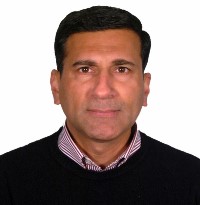and Proposition for Project Driven Organizations
ADVISORY ARTICLE
By Tarun Mohindra and Madhur Srivastava
DRDO – Institute of Technology Management
Mussoorie, India
ABSTRACT
Risk and uncertainty are inherently associated with every novel developmental effort. Project Management integrates a variety of activities undertaken to successfully achieve project objectives. Various organizations across the globe have developed frameworks for guidance in these activities focused on different facet and elements in projects. In this paper based on open source literature review information about various project management frameworks is obtained, and a brief description of various frameworks for project management, their evolution, global utilization, their comparative analysis and tradeoff is presented. The mandate of Defence Research and Development Organization to indigenously develop defense technology and systems and become self-reliant is dependent on technological innovations and development which is managed using Procedures for Project Formulation and Management in DRDO (PPFM) guidelines. To attain the project objectives within time, budget and scope (QRs) constraints, over the years a systematic framework is devised. The intent of this research is to obtain best project management practices from available frameworks, assess their applicability and to enrich DRDO PPFM 2016 framework by augmenting it with the available best practices.
Keywords: Project Management, Global Project Management Frameworks, Comparative Analysis.
- PREAMBLE
Technology development efforts are best managed by implementing project management strategies. The utilization of these strategies facilitates mitigation of risks and uncertainty associated with developmental efforts of a novel product or process. All projects are unique endeavors, and one size does not fit all [1]. A diamond shaped framework presented by Shenhar & Dvir[2] assists in demarcating projects based on 4 dimensions namely, Novelty addressing the uncertainty of goals, Technology describing the level of technological capability required, Complexity referring to system engineering approach of product complexity and Pace taking time as dimension stating urgency of project.
To attain project objectives within time and budget constraints, the framework encompassing project activities must adjust with the environment, the task, and the goal, rather than stick to one set of rules. Projects have existed, and have been managed, since medieval period; however project management, in its modern form, its language, tools, techniques and concepts, first appeared in the early 1960s. IPMA (formerly known as INTERNET) traces its history back to 1964[3], and rests at present with development of GAPPS (Global Alliance for Project Performance Standard) in 2012. Applicability of various frameworks in varying degrees to meet the need projects is dependent on quality standards; customer satisfaction and benefit realization and hence no individual framework includes entire spectrum of knowledge required to successfully terminate a project. Various industries, global regions have their own preferences in choice of framework.
Defence Research & Development Organization (DRDO) Govt. of India has also developed its restricted framework called PPFM (Procedures for Project Formulation and Management) [4] which encompasses the timeframe from pre-project activity to the post-induction life cycle support. The general tenets of project management were brought out in PPFM 2006 and were updated in PPFM 2014 & 2016. PPFM 2016 has brought out a common and standardized management framework for planning, sanctioning, reviews and accomplishing projects for seven different technology clusters of DRDO [4]. DRDO being an organization undertaking projects across spectrum of readiness levels from ab-initio research to proven system for induction into service can provide a roadmap to undertake projects in Indian context, using a structured framework.
A framework by definition is a basic structure underlying a system, or concept. Various Project Management frameworks intend to increase the project success rate by putting emphasis on different prospective. The frameworks are classified into [5]:
- Standards – A standard is a document established by an authority, custom, or general consent as a model.
- Methodology – A methodology is a system of practices, techniques, procedures, used by those who work in a discipline.
- Guides – A Guide is a foundation upon which organizations can build methodologies, policies, procedures, rules, tools and techniques, and life cycle phases needed to practice a discipline (project management)
- Manuals – A manual is a book giving instructions or information to be adhered to.
More…
To read entire article, click here
How to cite this article: Mohindra, T. and Srivastava, M. (2019). Comparative Analysis of Project Management Frameworks and Proposition for Project Driven Organizations, PM World Journal, Vol. VIII, Issue VIII, September. Available online at https://pmworldlibrary.net/wp-content/uploads/2019/09/pmwj85-Sep2019-Mohindra-Srivastava-comparative-analysis-of-project-management-frameworks.pdf
About the Authors

Sh. Tarun Mohindra
Mussoorie, Uttarakhand State, India
![]()
Sh. Tarun Mohindra has received his B.Tech. in Mechanical Engineering and MBA in Operations Research. He is serving Institute of Technology Management, Mussoorie as Sc. ‘G’ and has experience of over 25 years in Technology Management. His research interests include Technology Management, Project Management and Science Diplomacy

Madhur Srivastava
Mussoorie, Uttarakhand State, India
![]()
Madhur Srivastava has received his B.Tech (Mechanical Engineering) from Dr. APJ Abdul Kalam Technical University, Lucknow and M.Tech. from Defence Institute of Advanced Technology, Pune in Aerospace Engineering. He is presently working as Junior Research Fellow at Institute of Technology Management Mussoorie with research focus on Project Management and Technology Management from October 2018. Madhur Srivastava can be contacted at msrivastava.itm@gmail.com









